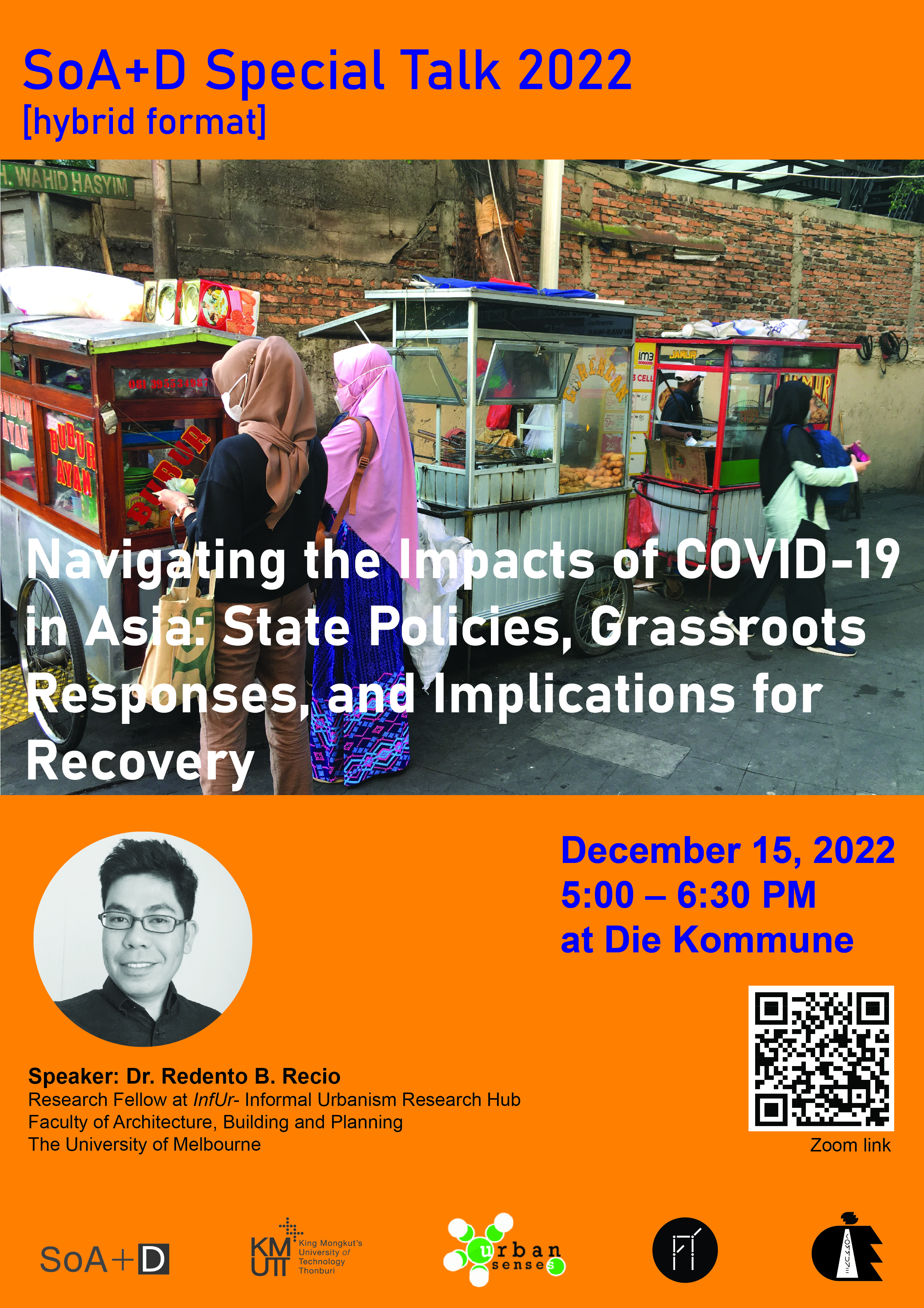UPCOMING SPECIAL TALK!! YOU ARE INVITED TO JOIN‼️
School of Architecture and Design, KMUTT
In collaboration with Urban Sense Lab x Die Kommune x Salayanion Cordially invites you to SoA+D Special Talk 2022 [in hybrid format]
“Navigating the Impacts of COVID-19 in Asia: State Policies, Grassroots Responses, and Implications for Recovery”
By Dr. Redento B. Recio
Research Fellow at InfUr- Informal Urbanism Research Hub
Faculty of Architecture, Building and Planning, The University of Melbourne
- Date: December 15, 2022
- Time: 5:00 – 6:30 PM
- Place: Die Kommune, Bangkok [in person]
Join online via Zoom Meeting :
https://kmutt-ac-th.zoom.us/j/5515120053
Meeting ID: 551 512 0053
Passcode: 7q2YK9
Die Kommune location:
https://goo.gl/maps/wtxkj8A8nWdxCcbW6
“Navigating the Impacts of COVID-19 in Asia: State Policies, Grassroots Responses, and Implications for Recovery”
Synopsis:
Globally, about 1.6 billion informal workers have been impacted by mobility restrictions and other measures to tackle the COVID-19 pandemic. In the urban global South, megacities in Southeast and South Asian regions have been heavily impacted by the crisis where there is a very high concentration of informal workers. Evidence from many of these cities indicate critical governance gaps in pandemic governance, characterised by exclusionary politics of public health risk mitigation and ad-hoc policy responses that were unresponsive to the work and welfare needs of the urban poor including the informal workers. This presentation touches on the pandemic impacts on informal workers in five Asian megacities: Dhaka (Bangladesh), Hyderabad (India), Karachi (Pakistan), Jakarta (Jakarta), and Manila (Philippines). It explains the key thematic threads emerging from COVID-19 policies, unpacking their gaps and lessons learned in addressing the needs of informal workers. The presentation also sheds light on grassroots solidarity practices that have cushioned the devastating effects of the crisis. It identifies the implications of such state policies and citizen-led responses for (post) pandemic planning, urban governance, and scholarly theorising on Asian cities in an age of recovery.
For your convenience, please feel free to contact us via
- Facebook: https://facebook.com/kmutt.soad
- LINE: https://lin.ee/R565RIc
- Twitter: https://twitter.com/soadkmutt
- IG: https://www.instagram.com/soad_arch
